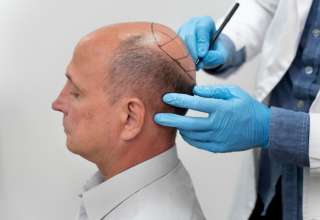Here’s a quote we’ve all heard a million times: prevention is better than cure. But how can we take preventive measures without understanding, processing, and using health information and services?
The majority of people worldwide visit hospitals and make medical appointments upon identifying symptoms and health concerns. How many of us make medical appointments to gain information or use resources to educate ourselves on disease prevention? We typically turn to online journals and publications when we suspect our bodies and minds harbor illnesses and symptoms.
Health literacy is crucial to support disease prevention and reduce the burden on healthcare systems worldwide. Finding, understanding, and using healthcare information and resources is instrumental in embracing healthy lifestyle changes. Our ability to find and use information makes us capable of looking after our health. It also allows us to protect our loved ones from life-threatening illnesses.
Keep reading to explore the significance of health literacy in preventive care and leading a healthy life.
Familiarity with one’s Body
Not everyone is familiar with the human anatomy, medical terminologies, and disease risk factors. Many of us don’t realize the need to learn these concepts until we come face to face with debilitating symptoms. Educating ourselves about bodily organs and their functions is crucial to support healthy functioning and prevent risk factors.
Health literacy educates us and enables us to take better care of our bodies. It’s crucial in preventing health problems and managing symptoms that develop unexpectedly. Utilizing health information and resources protects us against medical negligence and adverse lifestyle choices.
Healthcare professionals, particularly nurses, play an instrumental role in raising awareness. Registered nurses and young professionals pursue an online nursing masters to build clinical significance and run impactful awareness campaigns. Nurses are taking the lead in raising community awareness, and higher education gives them clinical authority and professional integrity.
Combining education with a full-time nursing career is not a child’s play. Luckily, online learning opportunities allow nurses to enjoy flexibility and accessibility to pursue career advancement in their chosen specializations. If community awareness is your goal, higher education can help you carve out leadership skills and roles.
Robust Preventive Care
People who read up on diseases, risk factors, and symptoms are better equipped to deal with unexpected changes in their bodies. In contrast, people with minimal or no medical knowledge find themselves at an enormous disadvantage. We can observe these patterns in any disease, depression, cancer, heart disease, or diabetes.
Recognizing one’s family history for a particular illness, such as diabetes or depression, makes us concerned for our wellbeing. Medically literate people can identify risk factors and take preventive measures to avoid developing similar illnesses as their parents or grandparents. In contrast, people who continue making the same lifestyle choices as their parents cannot break free of genetic diseases.
Health literacy enables people to avoid debilitating illnesses with timely lifestyle changes. It empowers people with resources to regulate their habits and make self-care a priority. Familiarity with bodily functions, medical terminologies, risk factors, and symptoms empowers us to undertake timely prevention.
Overcoming Uncertainty & Fear
Getting diagnosed with an illness like cancer, heart complications, or mental concerns makes us fearful and stressed. Uncertainty breeds fear and anxiety, rendering us incapable of looking after ourselves. The coronavirus pandemic is an excellent example of how misinformation spreads fear, anxiety, and chaos.
The World Health Organization (WHO) and health advocacy groups have fought the pandemic with awareness campaigns and information. WHO has, time and again, emphasized the need to educate ourselves on preventive care, risk factors, and symptoms. Populations cannot fight against infections, viruses, pandemics, and diseases when overwhelmed with fear and uncertainty.
Health literacy empowers us with instruments to fight against misinformation and myths and take practical measures. Patients and their families seek resources to understand complication symptoms and regulate self-care.
Healthy & Wholesome Lifestyles
Health literacy has a powerful and far-reaching impact on our life quality. You see, it equips us with the knowledge to regulate nutrition, lifestyle choices, habits, and sleeping patterns. Ultimately, health literacy contributes to life quality by encouraging us to make healthier life choices.
In an age when we’re fighting a continuously evolving and worsening pandemic, health literacy is of the utmost significance. Gaining information on nutritious dietary choices helps us avoid digestive issues, diabetes, and many health concerns. Likewise, realizing the dangers of smoking, alcohol consumption, and substances abuse encourage us to embrace healthy changes.
Diseases don’t attack our bodies suddenly, out of the blue. The risk factors slowly creep onto our bodies, latching themselves onto our organs and causing grave damages. It’s a gradual and steady process that takes time, and it’s entirely avoidable with preventive care. Even life-threatening diseases like cancers are preventable if we educate ourselves and take practical measures.
Reducing Healthcare Burdens
The healthcare sector worldwide is heavily burdened and largely incapacitated, given the rising numbers of infected people. The current pandemic has highlighted the flaws and incapacities of the healthcare industry. It has also made us realize that populations need to prioritize preventive care to reduce the burden on healthcare systems and professionals.
Health literacy enables every individual and household to take responsibility for their health. When people start prioritizing preventive care and recognize risk factors, they are less likely to fall ill. In the long run, these measures reduce the burden on healthcare systems, making medical care accessible for all.
Throughout the ongoing pandemic, WHO and healthcare advocacy groups have emphasized the need for self-care and regulation. People are encouraged to stay home, practice social distancing and stay vigilant about symptoms. What is the purpose of issuing such guidelines? It’s simple: prioritizing safety and preventive care reduces the number of infected people to bend the curve.
Final Thoughts
Health literacy is of the utmost significance in an age where airborne viruses and infections are rising exponentially. It’s crucial to remind ourselves that growing viruses and diseases are a manifestation of climate change. Global healthcare organizations are issuing repeated warnings on the evolving strains of COVID-19 and other infections.
It’s time we take responsibility for our health and wellness instead of burdening the healthcare sector. Learning about our body functions, nutrition needs, and lifestyle changes is instrumental in leading healthy, wholesome, and fulfilling lives. Ultimately, health literacy also helps us reduce our financial burdens, as treatments can drain our savings. Educating oneself about disease risk factors and preventive care is crucial to living longer, healthier lives.











